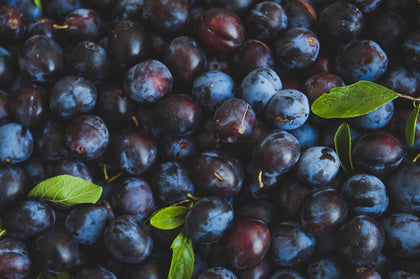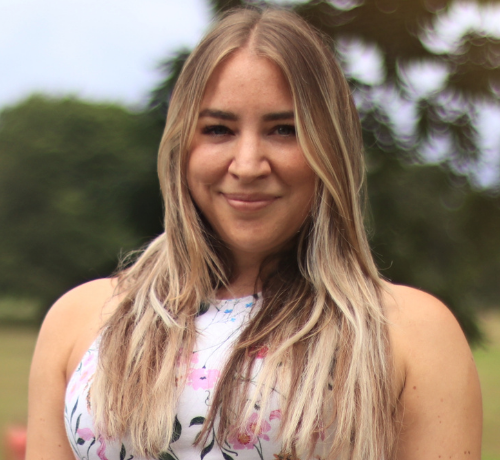Everyone has their own way of unwinding after a long, hard day. Lots of people reach for a glass of rich, red wine. You've probably heard that a glass of red wine and a chunk of dark chocolate can be good for you, but do you know why it's good for you?
Resveratrol is the plant compound found in a glass of red and a variety of other foods. It boasts impressive health benefits, including helping with hair loss, reducing the signs of aging and even lifting depression and anxiety. To understand a little more about resveratrol and what it does to the body, we've spoken to the experts and checked out the research so you'll learn all you need to know and resveratrol and hair loss. Plus, find out which products you should use to combat thinning hair.
#include-related-slider#
What Is Resveratrol?
"Resveratrol is a naturally occurring phytoalexin produced by plants in response to stress such as injury, UV radiation, ozone exposure or fungal attack," explained Dr. Jessica Nouhavandi, lead pharmacist, co-founder and co-CEO of the accredited online pharmacy Honeybee Health. "It belongs to a class of natural polyphenols known as the stilbenoids group and many studies have shown that it has very high antioxidant potential. Resveratrol can be found in the skin of grapes, in dark chocolate, in plants and in peanuts. It can also be found in dietary sources such as purple grapes, dried roots of Japanese knotweed, rhubarb, pistachio, groundnuts and many berries (including blueberries, cranberries and mulberries)."
Also: Does Drinking Alcohol Affect Hair Loss?
What Do Antioxidants Do?
We all know that antioxidants are good for the body, but what actually are they? Well, in simple terms, antioxidants help neutralize free radicals, stress, pollutants and unstable molecules that harm your cells. These things tend to speed up the aging process and halt hair growth, so it's well-worth pumping your diet with some antioxidant-rich foods.
Without antioxidants, you would suffer cell death and damage, so they're essential. Your body needs to maintain a certain level of antioxidants to remain healthy and free from infections. It has its own reserve of antioxidants, but you can boost that by eating foods such as blueberries, sweet potatoes, turmeric, avocado and dark, leafy greens. Vitamins A, C and E are also beneficial.
Resveratrol has antioxidant properties and some studies suggest that it helps lower blood pressure and even reduce the stress put on the artery walls when the heartbeats. But can it help with hair loss and does it reduce the signs of aging?
Read: Everything You Need to Know About Chemical Hair Relaxing
Is Resveratrol an Anti-Aging Ingredient?
In general, resveratrol is thought to help protect the skin's surface. A study suggests that resveratrol is one of the best antioxidants to consume to shield the skin from harmful UV rays. It can boost the skin's natural barrier and make it look smoother and healthier.
"Resveratrol has been around for a long time as an alternative to vitamin C," said director of skincare and registered nurse at PFRANKMD, Jennifer Kennedy. "Many people will use it in their serums to help reduce oxidative stress, sun damage, and help with exposure to pollutants and aging overall as it helps repair the skin."
If it's youth that you're chasing, resveratrol can help the skin improve cellular function and stimulate healthy cell proliferation. When used alongside collagen supplements or other healthy hair and skin supplements, resveratrol can help combat free radicals that cause the skin to age.
Check Out: VEGAMOUR Customer Reviews
Can Resveratrol Help With Hair Loss?
When it comes to hair growth and hair loss, there are many things to consider. Hair loss can be triggered by hereditary conditions, bacterial infections and stress. Thankfully, there are many nongenetic conditions that a healthy, protein, nutrient-rich diet and good hair wellness supplements can help with. And resveratrol is thought to be one of the most beneficial ingredients.
Only one study has shown promising results for the benefit of resveratrol on hair growth, according to Dr. Dimitar Marinov, M.D., Ph.D., and medical expert for Muscle + Brawn, however the study was not conducted on human.
"Human studies are needed to confirm that resveratrol can slow down or prevent hair loss," he said.
It's suggested that resveratrol prevents endothelial dysfunction, which leads to dying hair follicles due to the strangulation of blood vessels and hypoxia. When the blood flow to the hair follicles slows down, hair growth can falter. Resveratrol can also stimulate SIRT1, which helps repair DNA and upregulate antioxidant genes. Both mechanisms prevent hair loss caused by oxidative stress.
Resveratrol is also believed to boost mitochondrial function and, in turn, the energy production of the hair cells. This helps keep hair follicles healthy and young. Some research also suggests that resveratrol can help suppress a hormone that can inhibit blood flow to the hair follicle.
It's clear that there's a link between resveratrol hair loss and potential hair growth, but there are other ways you can stimulate the part of the dermis in the scalp that gives rise to rapid hair growth.
What Else You Can Do About Thinning Hair?
If you're hair is thinning, then you already know there's no one magic overnight solution. Hair wellness journeys take effort, patience and self love. Here are some more things you can do to nurture you and your hair:
Scalp Massages
A good scalp massage can help release tension around the crown of the head, and not only does it feel good, research indicates that if you do it regularly, you might also experience thicker hair. Great, if you're struggling with alopecia, scalp massaging focuses on the hair follicle, which is found just below the skin's surface. When these follicles are stimulated, the blood vessels are dilated and hair growth (potentially) happens.
Massage your scalp a couple of times a week in the shower to help boost the look of your hair and help you relax. Or use it to work in your favorite hair serum to help spread the product and aid with absorption and blood flow.
Read: Everything You Need to Know About Chemical Hair Relaxing
Reduce Stress
The world can be a difficult place, and unfortunately, if you find yourself under an enormous amount of stress, you could also see more hair loss than usual. (As if things aren't tricky enough!) Stressors come in all shapes and sizes — perhaps you're dealing with difficult work conditions, or maybe you're living with financial complications. Whatever it is, if you don't find time to unwind properly, you could experience physical side effects.
Telogen effluvium is the type of hair loss most associated with stress. You could also experience Alopecia areata (hair loss in specific areas), Trichotillomania (hair-pulling) and Androgenic alopecia (thinning hair). Ensure you're eating well and work on your sleep hygiene to encourage a flow state and deep rest.
Consider Supplements
A healthy, nutritious diet is key to a healthy head of hair. Filling up with foods that are rich in protein and vitamins will help improve the look of your skin and improve your health overall, and of course, keep an eye out for resveratrol. If it's hair loss you're currently concentrating on, you might want to introduce supplements into your routine. GRO Biotin Gummies feature a combination of minerals and vitamins that nourish the scalp and help support healthy-looking hair. The completely vegan formula contains biotin, folic acid and an abundance of vitamins that help give hair a healthy shine and maintain the scalp's health.
Talk To a Professional
Suddenly noticing dramatic hair loss can impact your overall well-being. For many people, hair is linked to their confidence and mental health. If you're struggling with hair loss and nothing you try is helping, always check in with a health care professional to get advice. With the proper guidance, you'll hopefully increase the health of your hair quickly and with minimal fuss.
Read: 6 Benefits of Grape Seed Extract for Hair
Who Should Avoid Resveratrol?
Before trying a new ingredient or actively increasing your intake, make sure you do your due diligence. You don't want to trigger health concerns or experience an adverse reaction. If you're taking specific medication to maintain your health or you're prone to allergic reactions, check in with your health care provider beforehand.
The jury is still out on the negative side effects of long-term or high-dose use of resveratrol. One study suggests that a high dose could be linked to a high fever and decreased blood pressure. It's also worth noting that if you take blood-thinning tablets like warfarin, aspirin or ibuprofen, you could experience an increased risk of excessive bleeding.
"Depending on the formulation, some products are contraindicated in growing children, menstruating females and in the presence of anemia due to the binding of resveratrol to copper and iron," Nouhavandi said. "Resveratrol may interact with carbamazepine and other substrates of CYP3A4. Please ask your pharmacist or prescriber if you are concerned about interactions with your specific medications."
As with all supplements, it's best to talk to your doctor first, especially if you have a preexisting condition.
#include-related-slider#
Is Resveratrol Good for Hair Loss?
So, if you love that glass of red in the evening and dark chocolate is your sweet treat of choice, you can feel reassured that you're also doing your body some good. While some swear by resveratrol's anti-aging and hair loss benefits, more research needs to be done before it's sworn in as an absolute must-have. But quite simply, you have nothing to lose by testing the resveratrol waters. And you can always opt for hair products that are known to work.
More From VEGAMOUR
- Learn: Why Millions Love GRO Hair Serum
- Read This Before Getting PRP for Hair Loss
- 9 Biotin-Rich Foods for Healthy Hair
- 10 Things to Avoid When Growing Your Hair
Photo credit: jasper benning/Unsplash
Back



















